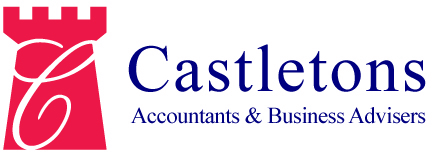Latest News
With the COVID-19 pandemic affecting all aspects of the economy, it is not surprising that some managed funds have suspended or cancelled the ability of investors to withdrawal their money. Broadly, managed funds include any fund in which the money you invest is pooled together with other investors. The fund manager or responsible entity then uses the pooled money to buy and sell assets (including shares or bonds) on your behalf.
The government’s super guarantee amnesty has now officially ended. If your business applied to the ATO and the application was received on or before the cut-off date of 7 September, your work isn’t done yet. Remember, to retain the benefits of the amnesty, your business is required to either pay the amount in full or enter into and adhere to a payment plan for any unpaid amounts.
If you run a business which may have a super guarantee shortfall, inadvertent or otherwise, be quick as time is running out to take advantage of the one-off government amnesty. The amnesty was passed by Parliament earlier this year and businesses could be forgiven if they missed the announcement which happened around the same time as COVID-19 started to take hold around the world.
In an effort to reduce the instances of phoenixing, where the controllers of a company deliberately avoid paying liabilities by shutting down indebted companies and transferring assets to another company, a new initiative of director identification numbers (DINs) has been passed and will come into effect in the near future.
In a bid to improve the experience of taxpayers when dealing with the ATO in relation to deceased estates, the Inspector General of Taxation and Taxation Ombudsman (IGTO) has recently completed a report which identified opportunities to improve tax administration and cut unnecessary tax compliance.
The COVID-19 pandemic has presented some of the toughest challenges to businesses and the economy in recent memory. No surprises then that the superannuation industry has also been heavily impacted both in terms of early withdrawal of super and in investment opportunities. In the context of an uncertain future, ASIC has released information about what it expects from super funds including SMSFs, in order to provide a semblance of certainty to trustees.
If you’re a retail or hospitality worker, 2020 has perhaps not been the best year. However, as with everything, there is a silver lining, with tax time just around the corner, you may be able to get a larger refund than usual. This is due to either being on reduced incomes or having the ability to claim a wider range of deductions, such as deductions for protective equipment (eg gloves, face masks, sanitiser or anti-bacterial spray), or for some, a combination of both.
If you’re a small business with an annual turnover of less than $10m and have 19 or less employees, you can take advantage of the free small business super clearing house (SBSCH) to take the complexity out of making super guarantee (SG) contributions for your employees. Using this facility, your business can pay SG contributions as a single electronic payment. Payments can be made via BPAY, EFT/direct credit, or credit card (through EasyPay). Note however, if you’re using a credit card account to make super payments, your financial institution may charge a fee.
We’ve always been told that consolidating our super is one of the easiest ways to grow our retirement funds. By reducing the amount of insurance, account-keeping, and investment fees paid in separate accounts, more money is available for super investments. However, recent findings by ASIC seem to suggest that if not done correctly, consolidating super may actually be detrimental to your retirement savings.
The ATO has recently released a guideline which provides a transitional compliance approach for complying super funds including SMSFs concerning the application of provisions in relation to certain non-arm’s length expenditure (or where expenditure is not incurred) in gaining or producing ordinary or statutory income
The ATO has released its practical administrative approach to businesses claiming the JobKeeper payment. Generally, it notes that it would only apply compliance resources to what would amount to a “scheme” in terms of the entity and its external operating environment. For example, if an entity’s business has not been significantly affected by external environmental factors beyond its control and/or the payments are in excess of those that would maintain pre-existing employment relationships.
The long-awaited final ruling in relation to FBT car parking fringe benefits has been delayed until at least mid-2020. With this date being so close to the original proposed implementation date in the draft ruling (Draft TR 2019/D5), the ATO has decided that any changes in the view will only apply from 1 April 2021. This will give employers sufficient time to implement what could be significant changes.












